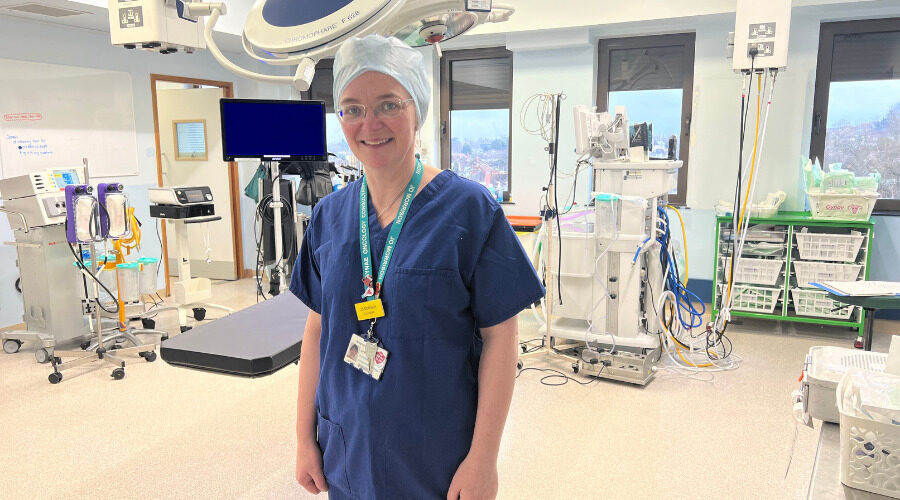
Spotlight
How you can get involved in an important cervical cancer screening study
Last week marked the annual Cervical Cancer Prevention Week, a campaign run by the charity, Jo’s Trust.
As part of the week, we want to highlight a research study, being run by our gynaecological oncology doctors at our trust, ahead of a national study to test if it is better to offer women who’ve recently given birth screening at their routine six-week post-birth check-up.
The study is called Postnatal Instead of Normally-timed Cervical Screening’ – or PINCS for short.
Latest NHS figures show that nationally in 2022 just over 70% of women aged between 25 and 49 went to their cervical screening, while the figure was 76% for those between aged 50 and 64.
Miss Jo Morrison, one of our consultant gynaecological oncologists and principal investigator for PINCS, explains how the study works. “We did some work a few years ago looking at how to improve access to cervical screening, as we had a number of young women who were diagnosed with cervical cancer shortly after pregnancy,” she says.
“For some, screening opportunities had been missed, as there was a lot of confusing information out there about whether people could have cervical screening during pregnancy, as well as when they could have it done after pregnancy.
“One of the ideas, that was generated by both new mums and GP practice colleagues, was that it’s often difficult for new parents to get to GP appointments, especially when they have young children, as their focus is very much on their baby.
“They told us that they’d find it so much easier if they could have their screening done at their six-week check. At the moment we aren’t able to do this as part of normal screening, but that’s not based on any evidence about how modern screening is done.
“To help us look into this further, we’ve had funding from the Medical Research Council to find out what people’s views are more generally. It’s a feasibility study at the moment, so Pre-PINCS, the first stage where we listen to people’s views more generally about being offered screening earlier.
“We know this won’t be right for everybody and some people may still feel it’s too early after having their baby, but so far we’ve found that many would quite appreciate this opportunity.
“We’re continuing to ask people to get involved with the pre-study over the next few years to see what sort of study we can do nationally to find out the answer to our questions, and see whether it’s something we could offer at that six-week check-up.
“Later this year we’re hoping to go onto the next phase of actually looking to see how accurate testing is at both six weeks and 12 weeks.”
Another area that the study is looking at is people’s attitudes towards potential alternative ways of cervical screening, that don’t require the normal internal examinations, such as using urine tests or self-swabs, for example.
“Cervical cancer screening is as important as ever, and even now with the HPV vaccination, a combination of vaccination and screening is keeping people safe, and has been a real success story,” adds Jo. “We’re able to screen for cell changes, that if left for several years, could develop into a cancer. This prevents a cancer from developing, not just detecting cancer early.
“As a result, we’ve seen a 75% decrease in death from cervical cancers in this country over a number of years – a really great achievement as sadly so many people die from cervical cancer across the world.
“It has a peak in younger women, particularly those aged between 25 and 35, but with vaccination and screening we can help to prevent this for the vast majority.
“My message to people is that we all know that cervical screening isn’t the most comfortable thing to have done, but there are things that you are able to do if you struggle.
“Let the screening nurse know you’re nervous, as they can give you more time, and it’s also possible to take someone into the appointment with you.
“Another tip for those who are menopausal is that you may want to think about getting some vaginal oestrogen for a couple of weeks before the appointment, as it really helps.”
To get involved with the study, go to https://forms.office.com/e/B6rwtWvAy0.

